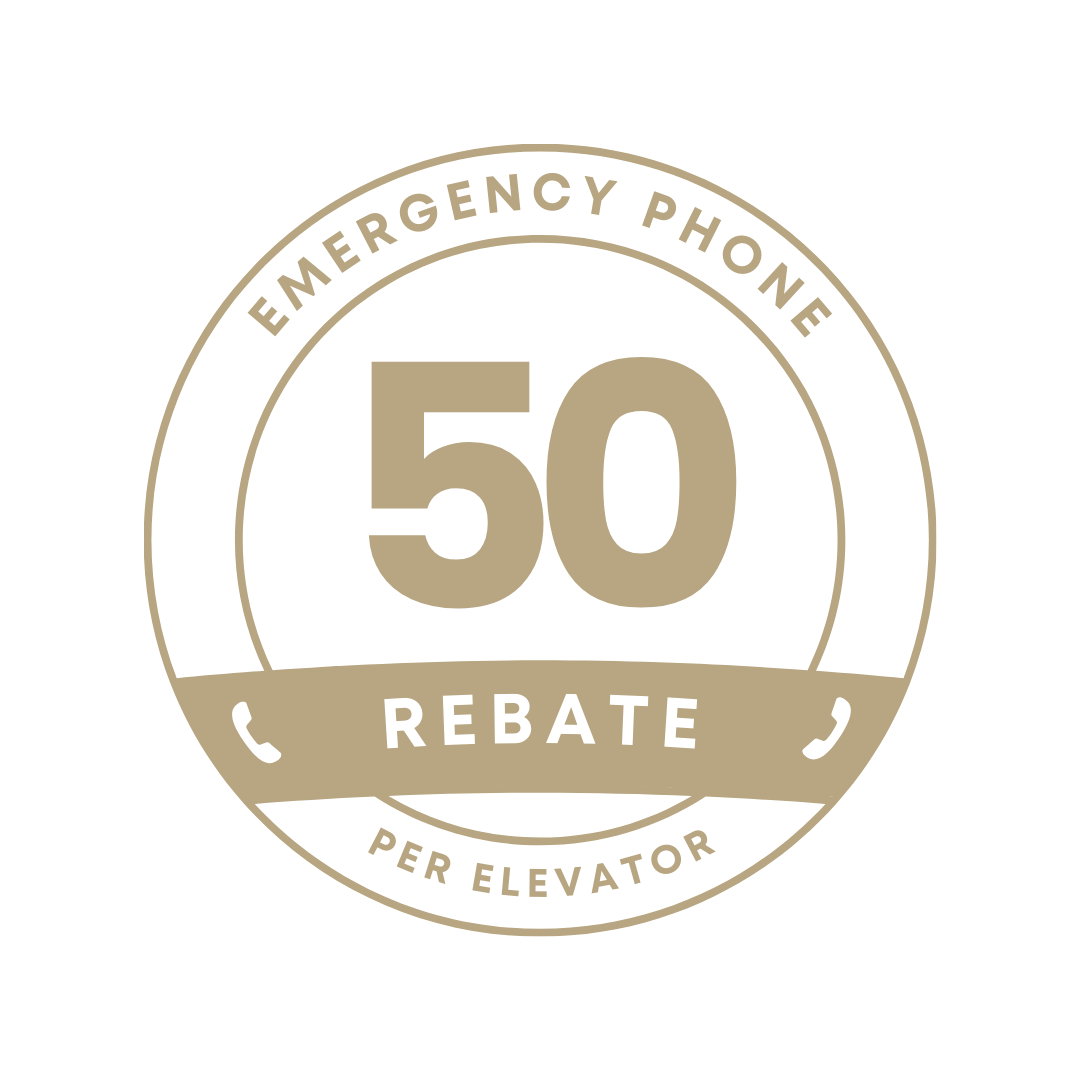Elevator Contracts
Elevator Consultant Solutions
Elevator contracts are agreements between building owners or managers and elevator service companies that outline the terms for the maintenance, repair, and operation of elevators. These contracts ensure that elevators are regularly inspected, maintained, and kept in good working order to comply with safety regulations. They typically cover services like routine inspections, emergency repairs, and potential upgrades. Elevator contracts are crucial for minimizing downtime, ensuring passenger safety, and extending the lifespan of the equipment. If you need help entering into, or exiting a current elevator contract, message us below!
Key Highlights
- Understanding the intricacies of elevator contracts is crucial for building owners and managers.
- Prioritizing preventative maintenance ensures the smooth operation and longevity of your elevators.
- Key contract components include the scope of services, frequency of visits, pricing, and terms of renewal.
- A thorough evaluation of potential service providers is essential before contract signing.
- Regular maintenance checks and a clear understanding of contract terms contribute to efficient elevator operation and building safety.
Elevator Contract Essentials: Everything You Need to Know
Introduction
An elevator contract is an important agreement between a building owner or manager and an elevator service provider. This document lays out the terms for taking care of and servicing the elevator system. It is important to know about local laws and rules regarding elevator safety and maintenance when you sign this kind of contract.
Understanding Elevator Contracts
Elevator contracts are detailed agreements. They outline the duties of both the service provider and the building owner. These contracts include routine inspections, preventative maintenance, emergency services, and updates for modernization.
Also, elevator contracts are not the same for everyone. The terms and conditions can change a lot. This depends on the type of elevator, its age, its condition, how the building is used, and what the service provider offers. So, it is important to carefully go through and negotiate the terms. This will help make sure they fit your building’s specific needs.
The Importance of Elevator Maintenance and Safety
Regular maintenance is very important for the safety and reliability of elevators. When elevators break down, it can cause big problems for tenants and disrupt how the building runs. It may also lead to expensive repairs.
Contracts should clearly state a preventative maintenance schedule. This schedule should include regular inspections, adjustments to parts, and lubrication. Taking care of elevators in advance reduces the chances of sudden breakdowns and helps the elevator system last longer. Building owners and managers need to focus on safety. They must make sure the contract follows industry best practices and all rules that apply.
Key Components of an Elevator Contract
Navigating the complexities of an elevator contract necessitates a clear understanding of its key components. These components form the foundation of the agreement and dictate the scope of services, payment terms, and liabilities:
Service Contract Duration: The length of the agreement, typically ranging from 1 to 5 years.
Number of Visits: Specifies the frequency of scheduled maintenance visits.
Payment Terms: Outlines the payment structure, including frequency and amount.
Renewal Clause: Defines the process and conditions for contract renewal.
Exclusions: Details services or repairs not included in the contract.
Carefully reviewing and understanding each of these components is essential to avoid misunderstandings and ensure that your building's needs are met.
Before You Begin: Preparing for an Elevator Contract
Before you reach out to elevator service providers, it is important to collect information about your building's elevator system. Knowing your needs well will help you make smart choices when negotiating the contract.
Also, spending some time to look for trustworthy elevator maintenance companies near you can save you time and trouble later on.
Identifying Your Building's Elevator Needs
Start by gathering important elevator information. This includes the type, make, model, year of installation, and maintenance history. Knowing how old your elevator system is and its current condition will help you decide how much service you need.
Think about the building's occupancy rate, usual traffic patterns, and any special accessibility needs. Having clear answers to these points will help you explain what you need to possible service providers.
Next, figure out your budget and how long you want the contract to be. Knowing your financial constraints and the desired contract length will help you choose providers who fit your needs. Lastly, look at your current contract, if you have one. Note what you liked and what could be better.
Gathering Necessary Documentation and Resources
Start by collecting all important papers about your current elevator system. This includes maintenance records, inspection reports, and any active warranties.
Along with this, check reliable sources in the elevator field for useful information. Groups like the National Elevator Industry, Inc. (NEII) and your state's elevator safety board can offer guidelines, codes, and other helpful resources.
When you choose an elevator maintenance company, make sure they have the right license, insurance, and a good reputation.
Step-by-Step Guide to Evaluating and Signing an Elevator Contract
Signing an elevator contract means you are making a long-term commitment. It is important to take the time to evaluate your options. This way, you can find a good service provider that fits your building's needs. By doing a careful assessment, you can make a smart choice. This will help create a strong and beneficial relationship with the provider you choose.
Step 1: Assessing Potential Providers
- Start by making a list of trusted service providers near you. You can use industry directories, ask other property managers for advice, or search online to find candidates.
- When you contact these providers, ask about their experience, skills, and special areas they focus on. Then, ask for detailed proposals. These should explain the services they offer, the pricing, and the contract terms.
- Look at the proposals closely. Pay attention to how each provider meets your needs and requirements.
- Feel free to ask about their safety records, how quickly they respond in emergencies, and their warranty policies.
- Lastly, look for online reviews and testimonials. This will help you understand the reputation and customer satisfaction of each service provider.
Step 2: Understanding Contract Terms and Conditions
Before you sign a contract, it is very important to read and understand all the terms and conditions. Pay attention to the parts that talk about what services are included or excluded, payment details, and how long the contract lasts.
Check the cancellation policy closely. Look for any fees or penalties related to canceling. Make sure the contract clearly states how to handle any performance problems or disputes. Be aware of any hidden charges or details that might cost you more money later.
It’s a good idea to talk to a lawyer who knows about real estate or construction law. They can help you review the contract and make sure your interests are safe.
Step 3: Negotiating the Best Terms
Once you understand the proposed contract terms, you should talk to the service provider to get the best agreement. Negotiating important points shows you are doing your homework. It can result in a fair deal for both sides.
If some parts of the contract are unclear or need more detail, ask for changes or additions. Have open and helpful talks with the service provider. Focus on finding solutions that work for both of you.
Remember, a good contract should safeguard the interests of both parties involved.
Step 4: Finalizing the Agreement
Once both parties agree, make sure to add all the changes to the final contract. Check the document carefully to catch any mistakes or missing parts.
It is good to have authorized people from both your group and the service provider sign the contract. Keep a copy of the signed contract for your files.
Remember that clear communication is very important during this whole process. Choose a person in your organization to talk with the service provider. Keep them updated about any changes in building use or any elevator issues.
Maintaining Compliance and Ensuring Quality Service
Being active in managing your elevator contract is important to ensure it works well. Setting up a system to keep track of maintenance visits, repairs, and talks with the elevator company is key. This keeps everything clear and helps make the renewal process easier.
It also gives you important documents if there are any arguments or insurance claims.
Regular Maintenance Checks and Balances
Regular elevator maintenance is very important for safe and smooth operation. Your contract should have a detailed maintenance schedule. This schedule should include how often visits will happen, what procedures will be performed, and how quickly they will respond to any problems.
You should set up a way to keep track of maintenance visits. Write down the date, time, and services done. Also, learn about basic elevator maintenance tasks. This includes checking for strange noises, vibrations, and making sure the elevator car and doors are working properly.
Your service provider is mainly in charge of maintenance. However, it helps to do routine checks to find issues early. Report any problems to your elevator service provider quickly to avoid big repairs later.
Handling Disputes and Contract Renewals
Disagreements or problems may happen during a contract. So, it is important to know the steps for resolving disputes that are in your contract. This usually involves specific contact people from both sides and agreed timelines for fixing issues.
For contract renewals, begin the process at least 120 days before the current contract ends. This gives you enough time to check how well your current service provider is doing, look for other options, and talk about better terms.
While looking back at your experience, think about how responsive the service provider is to maintenance requests. Also, consider how often breakdowns happen and the quality of communication. A well-kept elevator is vital for tenant happiness, building safety, and following laws, especially in Florida, where there are strict elevator safety codes.
Conclusion
In conclusion, understanding elevator contracts is important for the safety and efficiency of your building's elevators. By knowing the main parts of the contracts, looking at different providers, and agreeing on good terms, you can get a contract that fits your needs. Regular maintenance and following safety rules help keep your elevators safe and make them last longer. Always focus on elevator maintenance and safety to give a good experience for everyone using the building. If you have questions or need help with elevator contracts, feel free to ask for expert advice.
Frequently Asked Questions
What Should I Look for in an Elevator Maintenance Contract?
A good maintenance contract should have regular checks to stop problems before they start. It should cover repairs and services anytime, day or night. You need clear rules about what is not covered, like vandalism. Make sure the company uses parts that match your system, such as Otis parts for an Otis elevator. Think about whether they use an app for service requests and what kind of warranty they offer.
SAVE TIME
Elevator contractors can be tough. A local elevator consultant has industry leverage you may not.
SAVE MONEY
You don't know what you don't know. A professional elevator consultant will protect your pocketbook.
50 STATES
Our network of local elevator consultants spans the entire country - including Hawaii & Alaska!
EXPERIENCED
With decades of experience between our consultants and us, we've seen almost everything!




